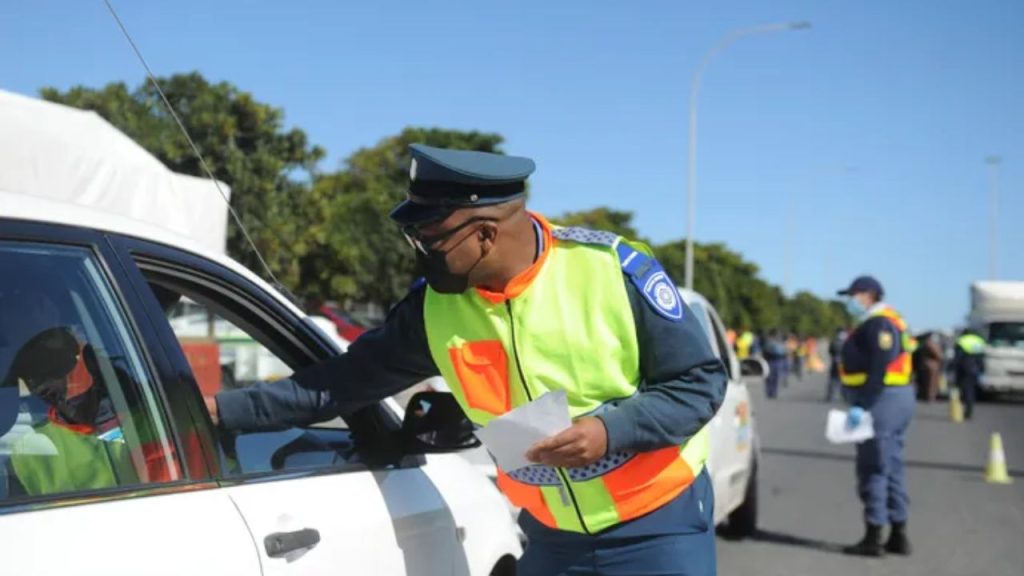From June 2025, South African motorists will experience a significant shift in how traffic violations are handled. A fresh wave of regulations has been introduced by the Department of Transport in a decisive move to combat reckless driving and align the country’s road safety laws with global standards. The new policies bring not just stiffer fines but also a range of reinforced enforcement tools designed to improve driver discipline nationwide.
Table of Contents
Speeding and Distraction Penalties Surge
Under the new regulations, certain violations have been categorized as high-risk, and the penalties have increased substantially. For instance, any driver caught exceeding the speed limit by more than 20 km/h in an urban setting may now face fines of up to R5,000 a dramatic escalation compared to previous years. Similarly, motorists found using mobile phones while driving will incur penalties of up to R3,500. Repeat offenders will face more than just fines. Multiple violations within a short period may result in license suspension, with cumulative penalties intended to remove repeat violators from the road and protect responsible drivers and pedestrians.
Zero-Tolerance Enforcement for Alcohol Offenses
One of the most aggressively targeted behaviors under the new regulations is drunk driving. While the legal blood alcohol limit remains 0.05g per 100ml, enforcement efforts have intensified. First-time offenders will now face immediate arrest, mandatory court appearances, and a minimum fine of R10,000. More severe cases may result in harsher outcomes, including imprisonment. For individuals who repeatedly violate drunk driving laws, permanent revocation of their driver’s license and potential jail time await. These measures signal a move toward a zero-tolerance approach and aim to remove the dangers of intoxicated driving from South Africa’s roads entirely.
Tech-Driven Policing and Real-Time Spot Fines

The new traffic strategy involves a vast deployment of automated surveillance systems across major highways and urban centers. These high-tech systems are designed to detect offenses such as red-light violations, unsafe lane changes, and ignoring pedestrian crossings. Rather than relying on manual enforcement, the updated system sends fines directly to violators through digital platforms, reducing the time lag and administrative burden associated with traditional paper-based citations. To ensure that these fines reach the intended recipients, vehicle owners are urged to keep their contact details updated in the national vehicle registry. Authorities believe this approach will create a more reliable and efficient way to enforce traffic laws consistently.
Diverse Reactions Highlight Public Concern
Public responses to the new fine structure have varied widely. Road safety advocates have applauded the changes, citing the urgent need to tackle South Africa’s high rate of road-related fatalities and injuries. Conversely, some motorists have expressed concern about the financial implications of the increased fines, especially for low- and middle-income individuals. Nevertheless, the Department of Transport remains steadfast, insisting that the primary objective is not revenue generation but the preservation of life. Officials argue that the long-term benefits reduced crashes, fewer deaths, and lower public health costs will far outweigh any short-term inconvenience.
The Numbers Behind the New Strategy
Statistical data from recent years illustrates the scale of the road safety crisis. Thousands of lives are lost annually to preventable traffic incidents, and the associated healthcare and infrastructure repair costs are immense. The government’s new strategy is based on both local data and international best practices, aiming to build a safer, more sustainable road environment. Authorities believe that by increasing the cost of negligent behavior both literally and figuratively they can create a meaningful change in driver conduct and contribute to a culture of accountability.
What This Means for the Everyday Driver
For motorists across the country, these changes mean increased responsibility behind the wheel. Ignorance of the law will not protect violators from the consequences. It is now more important than ever for drivers to remain informed, adapt their behavior, and drive with care. The era of leniency for dangerous driving is coming to a close, replaced by firm policies that demand full compliance. While these rules may initially seem strict, they are ultimately in place to protect everyone from commuters and pedestrians to children and cyclists.
Driving Into a Safer Future
With the traffic laws of June 2025 now in force, South African drivers face a new reality on the roads. The message from the authorities is unmistakable: reckless driving will no longer be tolerated. By staying informed, driving responsibly, and respecting the law, motorists can contribute to a safer future for all. As enforcement increases and penalties grow steeper, now is the time for drivers to reflect on their habits and make the necessary adjustments. In the end, these changes are about far more than fines they’re about saving lives.




